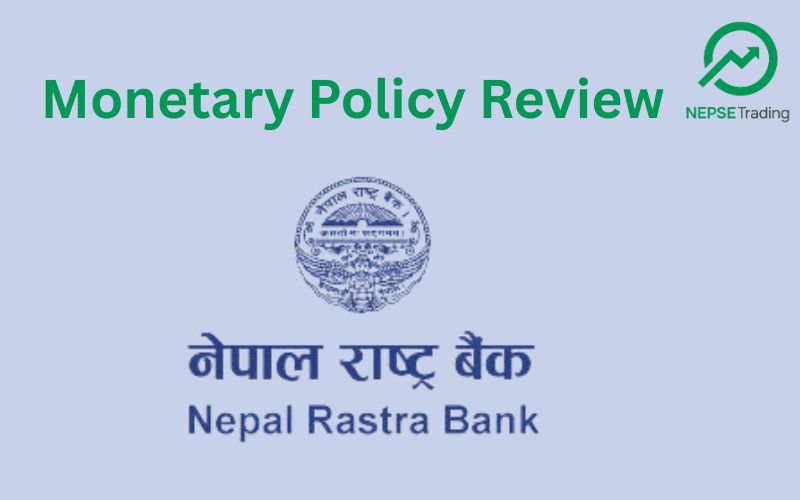By Sandeep Chaudhary
Key Stock Market Terms: Ordinary Shares, Preference Shares, Debentures, and More

Ordinary Shares (Common Shares)
Ordinary shares are securities issued by a company where dividends are distributed from the remaining profits after paying the specified rate of dividends to preferred shareholders. Investors who invest in ordinary shares gain ownership of the respective company proportional to their investment and are considered owners of the company. As owners, ordinary shareholders must bear more risk.
The dividend rate on ordinary shares is not fixed and can fluctuate based on the company's profits. Conversely, ordinary shareholders are not guaranteed dividends even if the company is making a profit, meaning there is no compulsory obligation to pay dividends on ordinary shares. However, the higher the profit the company makes, the higher the likelihood of receiving dividends. Additionally, the company can also distribute bonus shares to ordinary shareholders as dividends. In the event of the company's liquidation, ordinary shareholders can claim the remaining amount only after debenture holders and preferred shareholders have been paid their dues. Therefore, investment in ordinary shares is considered risky. Such a security tool is deemed suitable only for aggressive investors who are willing to take higher risks for higher returns.
According to the current prevalent system, the face value of ordinary shares is generally NPR 100. Even in the event of the company's liquidation leading to significant liabilities, the liability of ordinary shareholders is limited to the amount they have invested, and they are not required to bear it from their personal assets.
Rights Share
When a company that has previously issued ordinary shares to the public decides to issue new ordinary shares in the future, the existing shareholders have the first right to purchase these newly issued shares. Such shares are called rights shares because the existing shareholders have the first right to these newly issued shares. Existing shareholders are free to decide whether to purchase the rights shares or not. They are entitled to purchase rights shares in proportion to the shares they previously bought.
Preference Share
A preference share is issued by a company with a specified rate of dividends to be paid from the company's profits. Preference shareholders have a higher claim on dividends compared to ordinary shareholders, hence the name preference share. Similarly, in the event of the company's liquidation, preference shareholders have a higher claim on their investment and accumulated dividends. This makes investment in preference shares relatively less risky. However, if the company does not make a profit in a given year, preference shareholders cannot receive the specified dividend rate. On the other hand, regardless of the profit the company makes, preference shareholders cannot receive dividends higher than the specified rate. Thus, investment in preference shares carries lower risk and lower returns. Preference shareholders can participate in the company's annual general meeting only on matters related to their rights and interests. Preference shares are considered a hybrid security because they exhibit characteristics of both ordinary shares and debentures.
Preference shares can be cumulative (dividends accumulate and are paid from future profits if not paid in any given year) or non-cumulative, redeemable (repayable after a certain period) or non-redeemable, and convertible (convertible into ordinary shares after a certain period) or non-convertible.
Debenture
A debenture is a security issued with the promise of paying the principal and interest at specified rates and times. Its face value is generally NPR 1,000. Debenture holders receive annual or semi-annual interest at the specified rate on their investment amount. Debenture holders receive interest before dividends are paid to ordinary and preference shareholders. Even if the issuing company incurs losses, debenture holders are entitled to receive the specified interest. The relationship between debenture holders and the issuing company is like that of a lender and borrower. If the company fails to pay the specified interest on time, debenture holders can take action to liquidate the company. Generally, risk-averse investors prefer to invest in debentures. Debenture holders do not have the opportunity to participate in the company's annual general meeting or voting rights.
Debentures can be secured (issued with the company’s assets as collateral) or unsecured, redeemable (repayable after a certain period) or non-redeemable, and convertible (convertible into ordinary shares after a certain period) or non-convertible.
Dividend and Bonus Share
Dividends are the returns given to shareholders from the company’s profits. If such dividends are given in cash, they are called cash dividends, and if given in shares, they are called bonus shares or stock dividends. To capitalize savings or reserve funds, additional shares (bonus shares) are provided to existing shareholders, or paid-up capital is increased. The amount of dividend is determined by the board of directors.
Warrant
A warrant is a security tool issued to purchase a certain number of ordinary shares at a specified price within a certain period. In other words, a warrant is a right given to investors to purchase the company’s ordinary shares in the future. Warrants are generally issued along with bonds to make them more attractive to investors. Investors are free to decide whether to exercise the option to purchase ordinary shares using the warrant in the future. When a warrant is exercised, it converts into ordinary shares, but the bond remains unchanged. When issuing a warrant, details such as the exercise price, exercise ratio, and expiration date for purchasing ordinary shares are disclosed.
Blue Chip Share
Shares of a company that has been efficiently managed, consistently profitable for a long time, and providing dividends to investors, while being accountable to investors and earning their trust, are called blue chip shares. The prices of such shares are generally high, and dividends are moderately received.
Stock Broker
A stock broker is a securities trader who buys and sells securities on behalf of clients.
Merchant Bank
A merchant bank is an institution responsible for managing the primary issuance of securities, underwriting, and collecting applications and details for securities transactions.
Securities Dealer
A securities dealer is a securities trader who buys all or some of the securities issued in the primary market and sells them through the securities market, managing investments by entering into investment contracts with clients. Securities dealers conduct securities transactions in their name or through stock brokers.
Market Maker
A market maker is an institution that buys and sells securities in its name to provide liquidity in debentures issued under the government’s guarantee, collective investment schemes, or listed securities.
Share Registrar
A share registrar is an institution responsible for maintaining records of securities transactions, transfers, and name changes, and updating shareholders' records.
Central Depository System of Securities
The Central Depository System of Securities is a system that assists in the quick and simple completion of tasks such as record-keeping, transfer, and dematerialization of securities owned by all security holders. Security holders can open accounts and deposit their securities under this system, similar to depositing money in a bank. This system eliminates problems such as the loss, theft, or counterfeiting of securities and helps reduce transaction costs.
Underwriting
Underwriting is the agreement to purchase unsold securities in the primary market. The underwriter receives a fee from the issuing company based on the agreement for underwriting the securities.
Prospectus
A prospectus is a document published by a company intending to issue securities publicly. It provides detailed information about the issuing company, helping investors decide whether to invest in the company’s securities.
Over Subscription and Under Subscription
Over subscription refers to the situation where the demand for securities issued to the public exceeds the number of securities available. Under subscription refers to the situation where the demand for securities is lower than the number of securities available. In the case of over subscription, securities are allocated more to those who demand a smaller quantity and less to those who demand a larger quantity.
Premium
The difference between the issue price and the face value of a security is called a premium. Securities issued at a price higher than their face value are said to be issued at a premium.
Bid and Offer Price
The price at which a potential buyer is willing to pay for a security is called the bid price, and the price at which a potential seller is willing to sell a security is called the offer price. Securities transactions are completed when the bid price and offer price match in the securities market.
Paid-up Value of Listed Securities
The total paid-up value of listed securities is the sum of the amounts paid by all security holders for the listed securities.
Market Capitalization
Market capitalization is the total market value of all listed securities on the securities exchange market. It is obtained by multiplying the number of listed securities by their respective market prices.
Market Index
The market index is the ratio of the total market value of listed securities today to the total market value of listed securities in a base year. If the prices of listed securities increase, the market index increases, and if they decrease, the market index decreases. The Nepal Stock Exchange Ltd. prepares this index daily, called the NEPSE Index.
Market Price Per Share
The market price per share is the price of a share in the securities market.
Earning Per Share
Earning per share (EPS) is obtained by dividing the net profit earned by the company by the total number of shares. EPS provides an important measure of profitability for shareholders and external parties. A company with increasing EPS is considered successful in its performance, while decreasing EPS is considered a sign of problems.
Net Worth
Net worth is the total of the paid-up capital and all reserves of the company. When net worth is divided by the total number of shares, the book value per share or the net worth per share of the company is obtained.
Price Sensitive Information
Price sensitive information includes announcements related to dividend distribution or bonus share issuance, management changes, expansion plans, financial figures, important agreements with other parties, and other events and information that directly affect the price of securities.
Insider Trading
Insider trading refers to securities transactions conducted by a person directly related to the company or a close person based on information that is supposed to be disclosed to investors but has not yet been made public. Current regulations prohibit such transactions.
Bear Market and Bull Market
A bull market refers to a situation where the market is gradually improving. In such a market, all sectors, including industry, banking, and insurance









